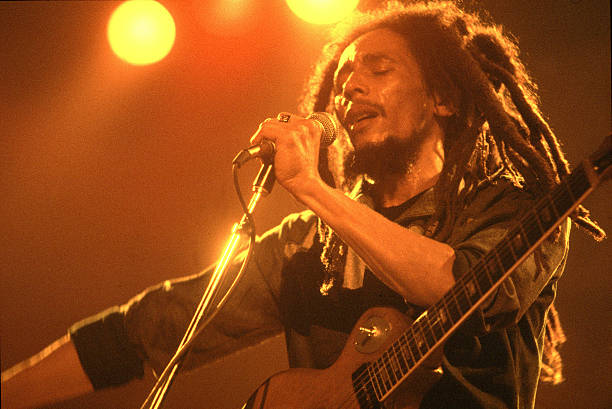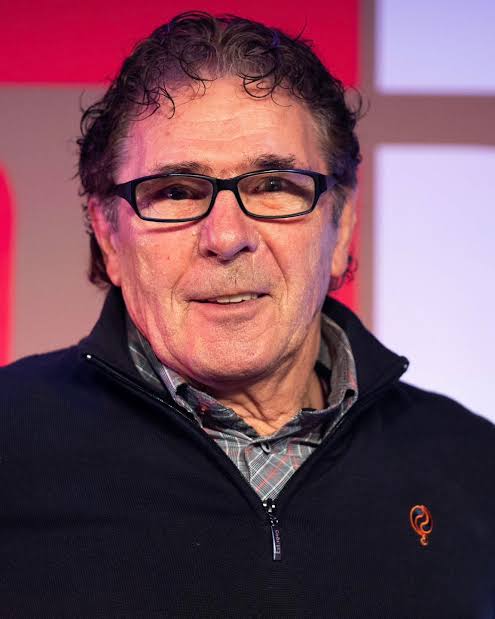
Jamaican musician Bob Marley performing in Chicago, Il, 27th May 1978. (Photo by Paul Natkin/WireImage)
Bob Marley was more than just a legendary reggae musician — he was a cultural icon, a revolutionary spirit, and a global voice for peace, justice, and unity. From humble beginnings in the rural village of Nine Mile, Jamaica, to becoming one of the most recognizable and influential figures in music history, Marley’s life was a testament to the power of art to inspire change. His music, philosophy, and commitment to truth continue to resonate with millions worldwide, decades after his passing. But what truly made Bob Marley special?
At the heart of Bob Marley’s legacy is his music. He didn’t just create songs to entertain — he crafted anthems that spoke to the soul. Songs like Redemption Song, No Woman, No Cry, One Love, and Get Up, Stand Up carried powerful messages about freedom, equality, love, and resistance against oppression.
Reggae music had existed before Marley, but he brought it to the global stage. He used the rhythm and soul of reggae as a vessel to address political injustice, racial inequality, and spiritual awakening. His music was both a weapon against tyranny and a balm for the wounded.
What made him stand out even more was his ability to reach diverse audiences. His songs transcended race, nationality, and language. Whether in Jamaica, Africa, Europe, or the Americas, people connected with the deep truths embedded in his lyrics.
Marley’s music was rooted in the struggles of the common people. He grew up in poverty and knew what it meant to face hardship. This realness infused his work with authenticity. He wasn’t singing about suffering from a distance — he lived it.
Through songs like War, inspired by a speech by Ethiopian Emperor Haile Selassie, he challenged racism, inequality, and violence. He was a champion of the downtrodden and gave voice to those who felt ignored by society. In many parts of the world, Bob Marley became a symbol of hope for the oppressed.
In 1978, he famously helped bring together two political rivals in Jamaica — Prime Minister Michael Manley and opposition leader Edward Seaga — during the “One Love Peace Concert.” Despite surviving an assassination attempt just two years prior, Marley risked his life for peace. His courage and commitment to unity made him not just an artist, but a peacemaker.
Bob Marley’s Rastafarian faith was central to his life and message. Rastafari is a spiritual movement that began in Jamaica and emphasizes the African identity of the Black diaspora, the divinity of Haile Selassie I, and the importance of living in harmony with nature and others.
Marley often spoke of spiritual liberation, not just physical. He believed that freedom started within — in the mind and soul. This belief is echoed in songs like Emancipate yourselves from mental slavery — a line from Redemption Song that continues to inspire movements for personal and societal change.
He encouraged people to see beyond materialism and embrace spiritual values, love, and respect. His message wasn’t tied to one religion or people; it was universal.
Even decades after his death in 1981, Bob Marley remains one of the most recognized and revered figures in global culture. His face appears on murals, posters, T-shirts, and documentaries across the world. His music is played in homes, streets, protests, and celebrations.
More than just a musician, Marley became a symbol of resistance, resilience, and redemption. His dreadlocks, his smile, and his voice became markers of a movement. People who had never visited Jamaica or knew anything about reggae felt connected to him.
His appeal lies in his authenticity — he never changed who he was for fame or money. He stayed true to his roots, his beliefs, and his mission. That kind of integrity is rare, and it made him beloved by many.
Bob Marley’s legacy is still alive through his music, his family, and the causes he supported. His children, including Ziggy, Damian, and Stephen Marley, have continued his musical and philanthropic work. The Bob Marley Foundation supports education, health care, and community development in Jamaica and abroad.
The message Marley left behind — of love, equality, and justice — remains incredibly relevant. In a world still facing division and strife, his words offer guidance and comfort.
Bob Marley was special because he embodied the ideals he sang about. He used his voice, his platform, and his soul to uplift humanity. He was a prophet in his time, a healer through sound, and a warrior for peace. His music wasn’t just entertainment; it was education, empowerment, and elevation.
To this day, when you hear a Bob Marley song, you don’t just hear music — you feel something deeper. That’s the mark of a truly special person. And that’s why Bob Marley will never be forgotten.






